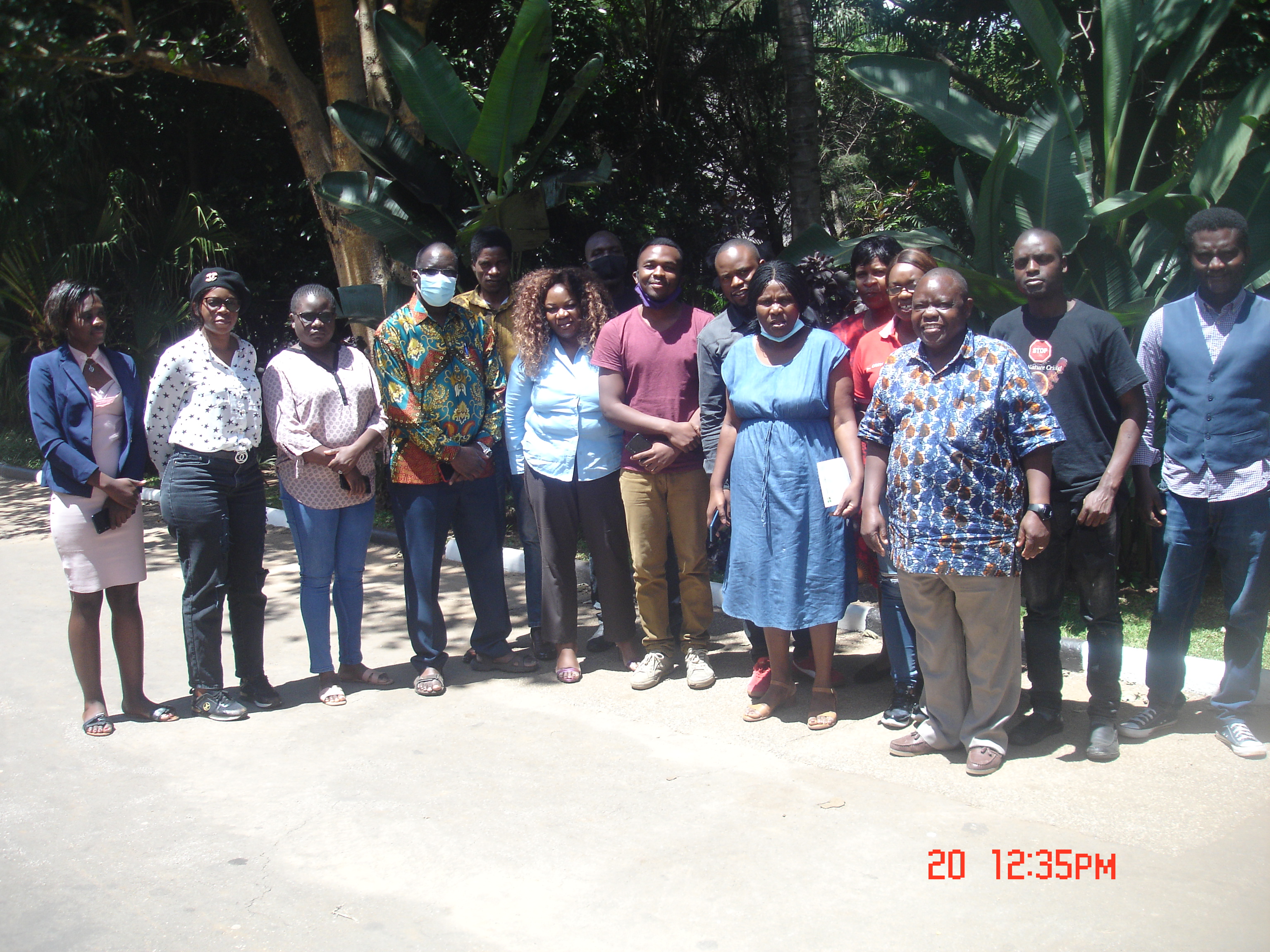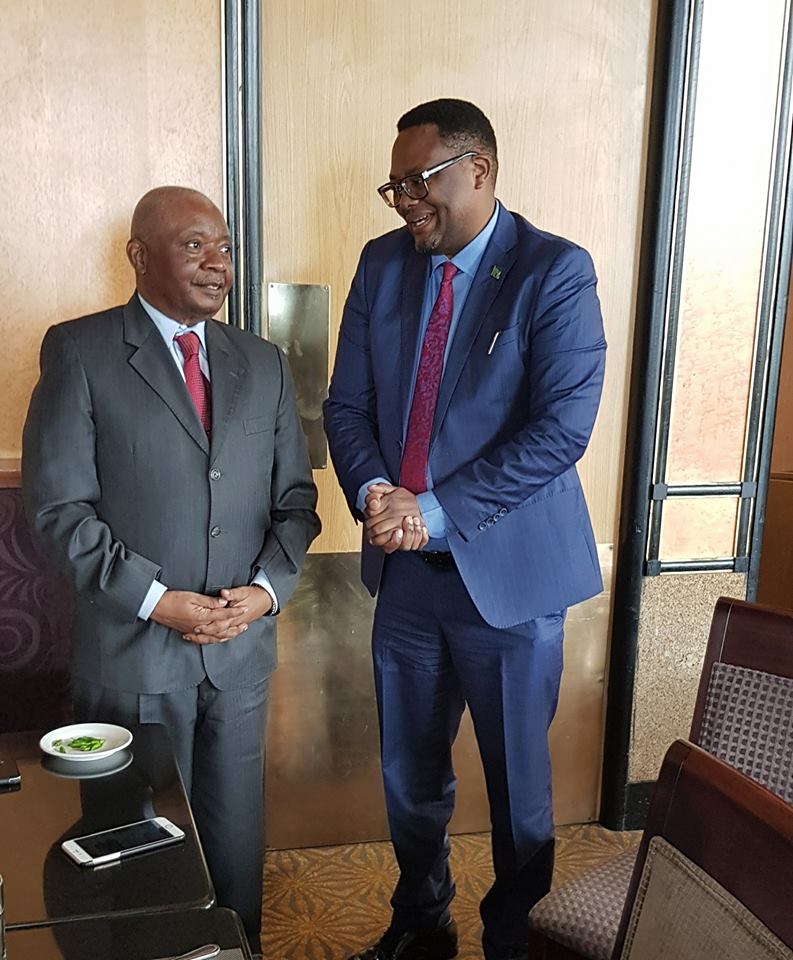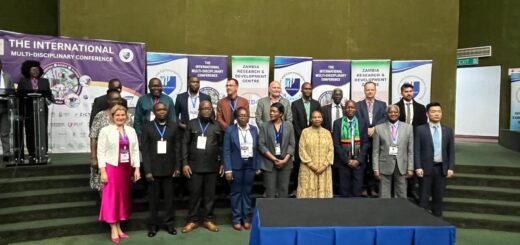Join fight against tobacco use, Professor Fastone Matthew Goma prods Zambian media
Notice: Undefined index: catFilterList in /home/zambi/public_html/wp-content/plugins/wp-likes/api.php on line 243

Centre for Primary Care Research Director Professor Fastone Matthew Goma at Sandy’s Creation Lunch with Editors Saturday 20 March 2021
By Ashton Kelly Bunda and Derrick Sinjela
CENTRE for Primary Care Research (CPCR) Project Director Zambia Professor Fastone Goma has urged the local media to intensify the fight against tobacco which globally kills more than 8 million people annually and 1.2 million human beings being exposed to second hand smoking.
Professor Goma says his team based at the University of Zambia (UNZA) School of Medicine at the Ridgway Campus on Lusaka’s Nationalist Road, reiterated that CPCR decided to engage Zambian media as key partners helping to administer information in the right doses so that government and other stakeholders are educated, to facilitate prompt and speedy domestication of the Framework Convention on Tobacco Control (FCTC).
Professor Goma lamented that the monitor policy implementation was first introduced in 2012 and by the year 2016, positive response was expected from government, though zero progress from the Patriotic government is now commonplace.
“It is long overdue, we now want the domestication of the Framework Convention on Tobacco Control being expedited, we are beginning to think the issue is dragging, it is too slow from the government side as a key stakeholder, though, my team has decided to engage the media, to help disseminate information to people in right doses,” Professor Goma stressed.
Professor Goma said journalist as a Fourth Estate to the Government (Executive), Legislature and Judiciary are closer to the ordinary people suffering due to consequences of tobacco consumption. Scribes are influential in placing a good battle against a cancerous stick called cigarette.
WHO Framework Convention on Tobacco Control

Full text
- Arabic [pdf 535kb]
- Chinese [pdf 3.41MB]
- English [pdf 542kb]
- French [pdf 553kb]
- Russian [pdf 770kb]
- Spanish [pdf 560kb]
Overview
The WHO Framework Convention on Tobacco Control (WHO FCTC) is the first treaty negotiated under the auspices of the World Health Organization. The WHO FCTC is an evidence-based treaty that reaffirms the right of all people to the highest standard of health. The WHO FCTC represents a paradigm shift in developing a regulatory strategy to address addictive substances; in contrast to previous drug control treaties, the WHO FCTC asserts the importance of demand reduction strategies as well as supply issues.
The WHO FCTC was developed in response to the globalization of the tobacco epidemic. The spread of the tobacco epidemic is facilitated through a variety of complex factors with cross-border effects, including trade liberalization and direct foreign investment. Other factors such as global marketing, transnational tobacco advertising, promotion and sponsorship, and the international movement of contraband and counterfeit cigarettes have also contributed to the explosive increase in tobacco use.
The core demand reduction provisions in the WHO FCTC are contained in articles 6-14:
• Price and tax measures to reduce the demand for tobacco, and
• Non-price measures to reduce the demand for tobacco, namely:
- Protection from exposure to tobacco smoke;
- Regulation of the contents of tobacco products;
- Regulation of tobacco product disclosures;
- Packaging and labelling of tobacco products;
- Education, communication, training and public awareness;
- Tobacco advertising, promotion and sponsorship; and,
- Demand reduction measures concerning tobacco dependence and cessation.
The core supply reduction provisions in the WHO FCTC are contained in articles 15-17:
- Illicit trade in tobacco products;
- Sales to and by minors; and,
- Provision of support for economically viable alternative activities.
The WHO FCTC opened for signature on 16 June to 22 June 2003 in Geneva, and thereafter at the United Nations Headquarters in New York, the Depositary of the treaty, from 30 June 2003 to 29 June 2004. The treaty, which is now closed for signature, has 168 Signatories, including the European Community, which makes it one of the most widely embraced treaties in UN history. Member States that have signed the Convention indicate that they will strive in good faith to ratify, accept, or approve it, and show political commitment not to undermine the objectives set out in it. Countries wishing to become a Party, but that did not sign the Convention by 29 June 2004, may do so by means of accession, which is a one-step process equivalent to ratification.
The Convention entered into force on 27 February 2005 – 90 days after it had been acceded to, ratified, accepted, or approved by 40 States.
























